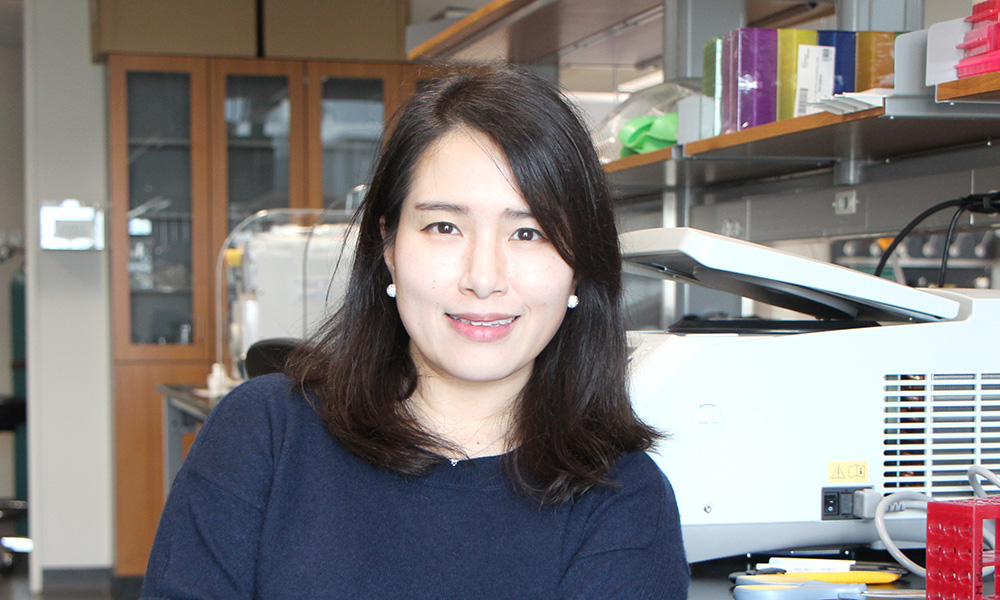Nature Cell Biology (PDF) has published a paper authored by MCB faculty Jeeyun Chung. The study outlines a role for the protein spartin in breaking down subcellular organelles called lipid droplets.
Chung is interested in lipid droplets, because, although lipid droplets were long thought to be inert fat, they are, in fact, dynamic organelles that are essential for the cell’s metabolism. Breaking down lipid droplets and recycling the fat molecules stored within them is necessary for cellular energy production and building cellular membranes.
The Nature Cell Biology study is part of Chung’s postdoctoral work in the Farese-Walther Lab at Harvard School of Public Health (now at Memorial Sloan Kettering). In the paper, Chung and her colleagues focus on a protein called spartin, which is known to play a key role in Troyer Syndrome, a form of hereditary spastic paraplegia. In the paper, Chung and her colleagues identify spartin as a lipophagy receptor that connects lipid droplets to autophagy machinery in preparation for their degradation.
Chung and her colleagues found that mutations in spartin disrupt the metabolism of lipid droplets in mouse neurons, which may explain the etiology of Troyer Syndrome. When they disrupted spartin function in mice, they observed build-up of lipid droplets and triglycerides in mouse neurons. The study marks an important step forward in understanding selective lipid recycling in the nervous system. Chung hopes to expand on these findings through the work of her own lab.
 (PDF)
(PDF)


